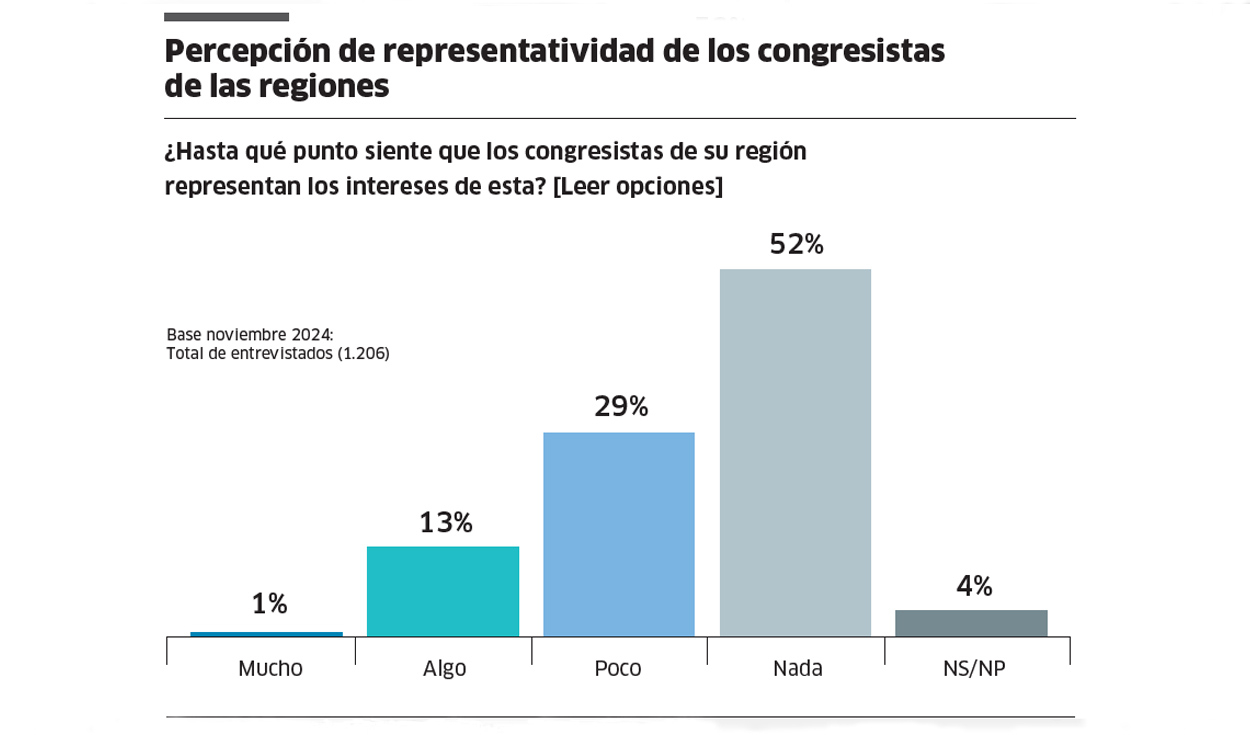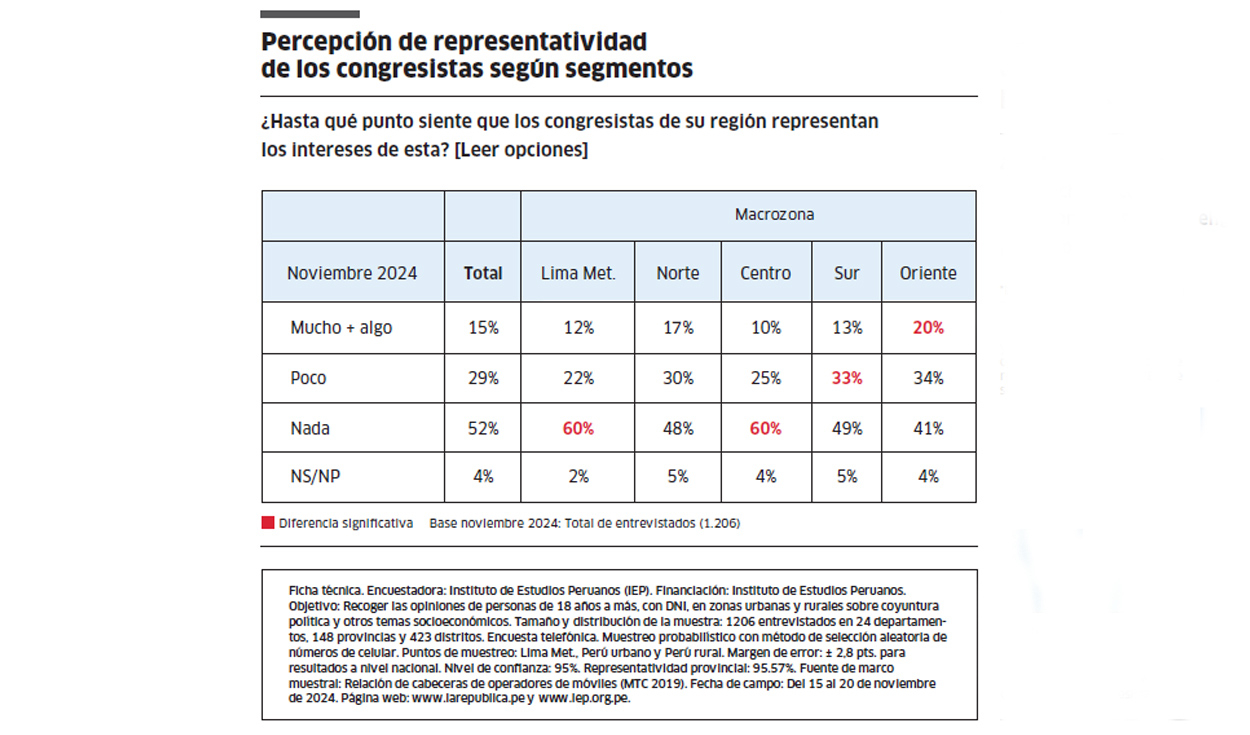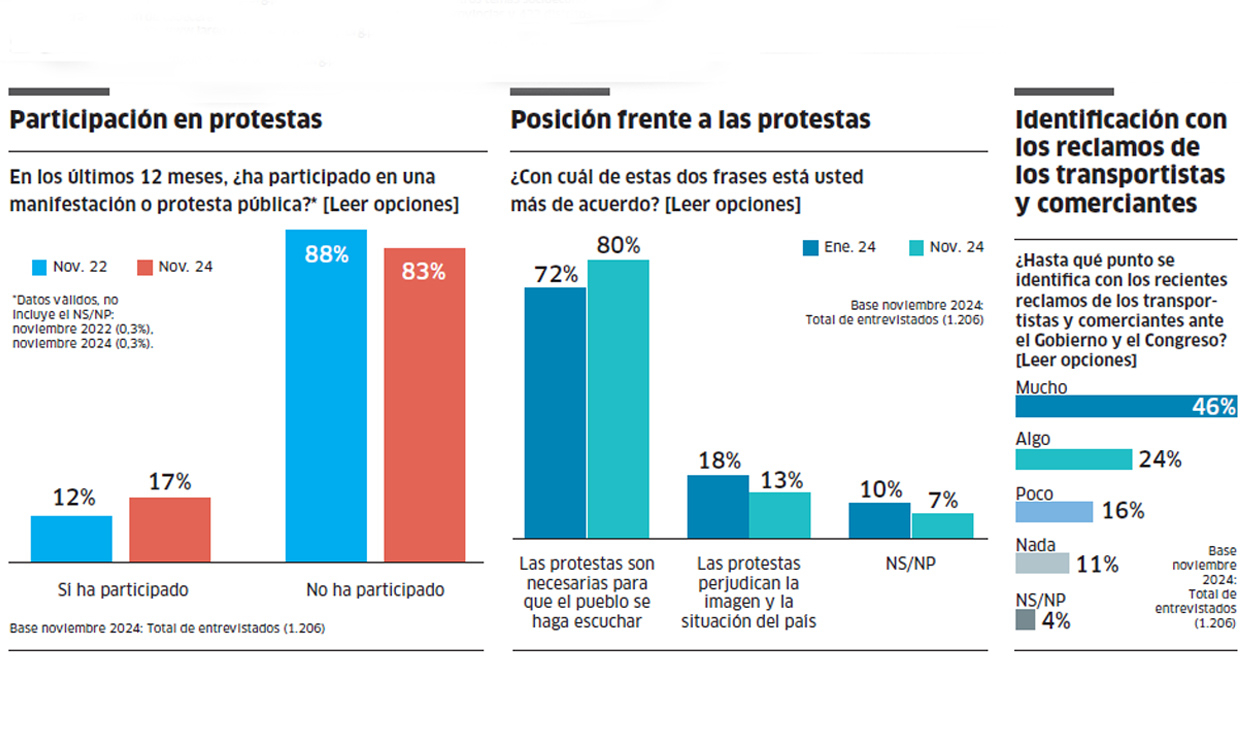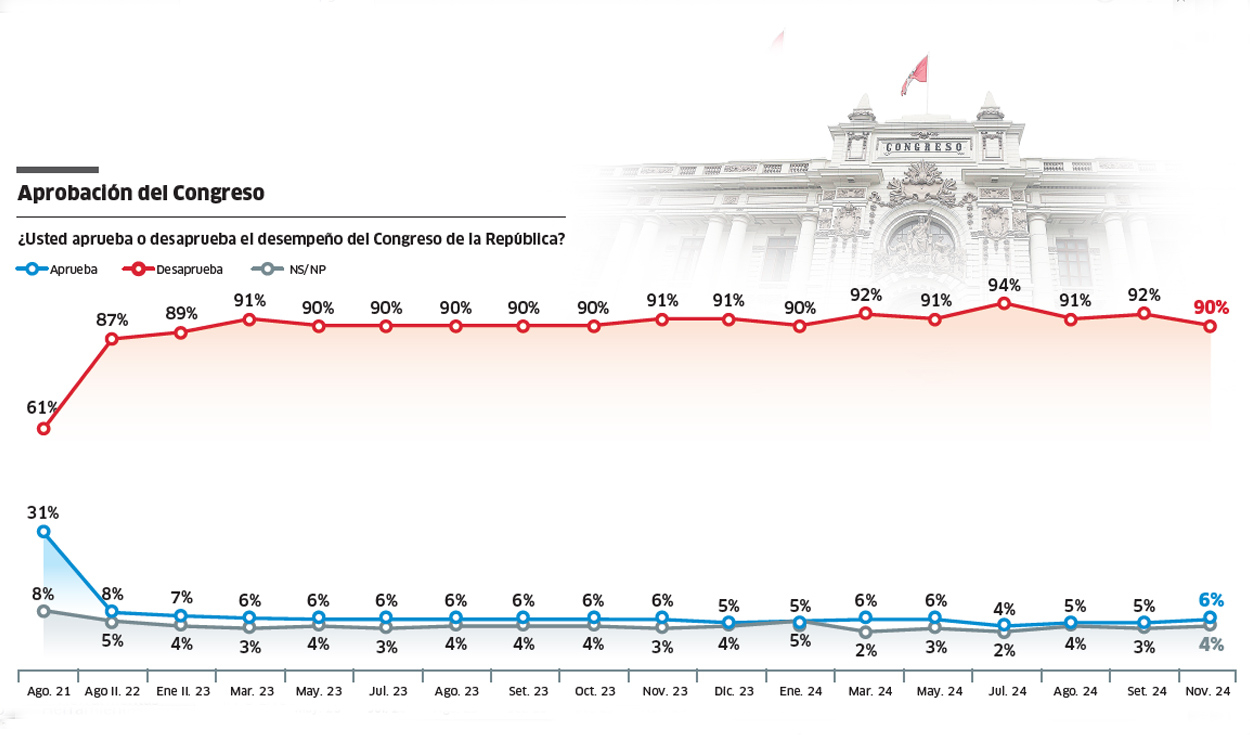He Congress persists in carrying out actions that generate rejection from an enormous majority of citizens in our country, while support for the protests in the streets, although still with low participation, as shown by the recent national representation survey of the Institute of Peruvian Studies (IEP)an investigation carried out with the newspaper La República.
The study consulted the population from Friday, November 15 to Wednesday, November 20 last and has margins of error of 2.8 points above and below each result to represent our national reality.
Approximately, the 90% of Peruvians disapprove of the performance of the current Congress; That is to say, nine out of ten fellow citizens are dissatisfied with this power of the State. This rejection remains at these levels for at least two years.
YOU CAN SEE: More corruption, worse security and Boluarte with no sign of improvement
Only 6% of citizens approve of the way Parliament is working.
This situation of minimal support characterizes the Legislature that resulted from the 2021 elections, so that it is almost unchanged in recent years.
This power of the State coincides with President Dina Boluarte in the high levels of rejection and low approval.
Besides, Nearly half of the country feels that the congressmen from their region do not represent the interests of their places of origin at allfor those who at least reached the position: 52% of those surveyed by the IEP agreed with this perception.
Less than a third of the population, 29% in the survey, estimates that parliamentarians poorly represent the relevant issues of their regions.
Barely 13% of compatriots perceive that their local legislators somewhat represent regional interests, and a minuscule 1% of the country believes that they do a lot of it.

The opinion that the congressmen from their region do not represent the interests of this jurisdiction at all is even more widespread in metropolitan Lima. This population has the largest number of parliamentarians.

preferential vote
31% of those surveyed in this study said that they had used the preferential vote in the 2021 Congressional elections. However, there would be an inconsistency due to redefinitions of memory: in April of that year, more than 40% had responded to the IEP that used this modality of voting.
In any case, among those surveyed who remember using the preferential vote, 49% say they are not at all satisfied with the work of the congressman they elected. Likewise, 23% indicated they had little satisfaction with the performance of the legislator they voted for and 18% somewhat. Only 7% expressed feeling very satisfied with their elected legislator.
YOU CAN SEE: Jorge Aragón: “Boluarte must have its days numbered, soon it will be less necessary for Congress”
protests
Demonstrations of protest in the streets are growing in favorable perceptions among citizens, although they are still not as nourished. Approximately, the 80% think protests are necessary so that the people can make themselves heard. In January of this year, 72% of the population were in this position.
Only 13% believe that these demonstrations harm the image and situation of the country.
Likewise, almost half of Peru, 46% in the IEP survey, strongly identifies with the recent protests by transporters and merchants before the Government and Congress.
About a quarter of the population, 24% in the survey, identifies somewhat with these protests.
Meanwhile, for 16% there is little identification with these protests and for 11% it is nothing.
The most active involvement remains low. A 17% have participated in a public demonstration or protest in the last 12 months. On the other hand, 85% of citizens have not had such interventions in that period.

Just moral support
Rodrigo Gil, political scientist, IEP researcher
In recent years, it has been observed how the Peruvian Congress has become a power that advances its initiatives without considering the opinion of the population. It is no coincidence that IEP surveys reveal that 9 out of 10 Peruvians disapprove of Parliament’s performance for almost 24 consecutive months. Besides,
The latest survey indicates that more than 50% of those surveyed do not feel represented by the congressmen of their region, which shows a deep disconnection between Congress and citizens. These figures have not prevented the groups from finding ways to organize, not to promote major reforms or strengthen institutions, but to protect particular interests, even of a questionable or criminal nature.
When the State ignores the population, protests usually become the main mechanism to make social demands visible. Therefore, it is not strange that 8 out of 10 Peruvians consider mobilizations necessary as citizen expression tool. However, when such a discredited Congress passes laws that repeatedly affect the well-being of the people, a kind of paradox is generated: The population supports the protests, but few mobilize. It is, in essence, just moral support.
Although a majority supports the role of the protesters and their demands, only 17% of people took to the streets in the last year. The disconnection is not only between Congress and the population, but also between the citizens themselves. In this context, Congress has a clear path.

















